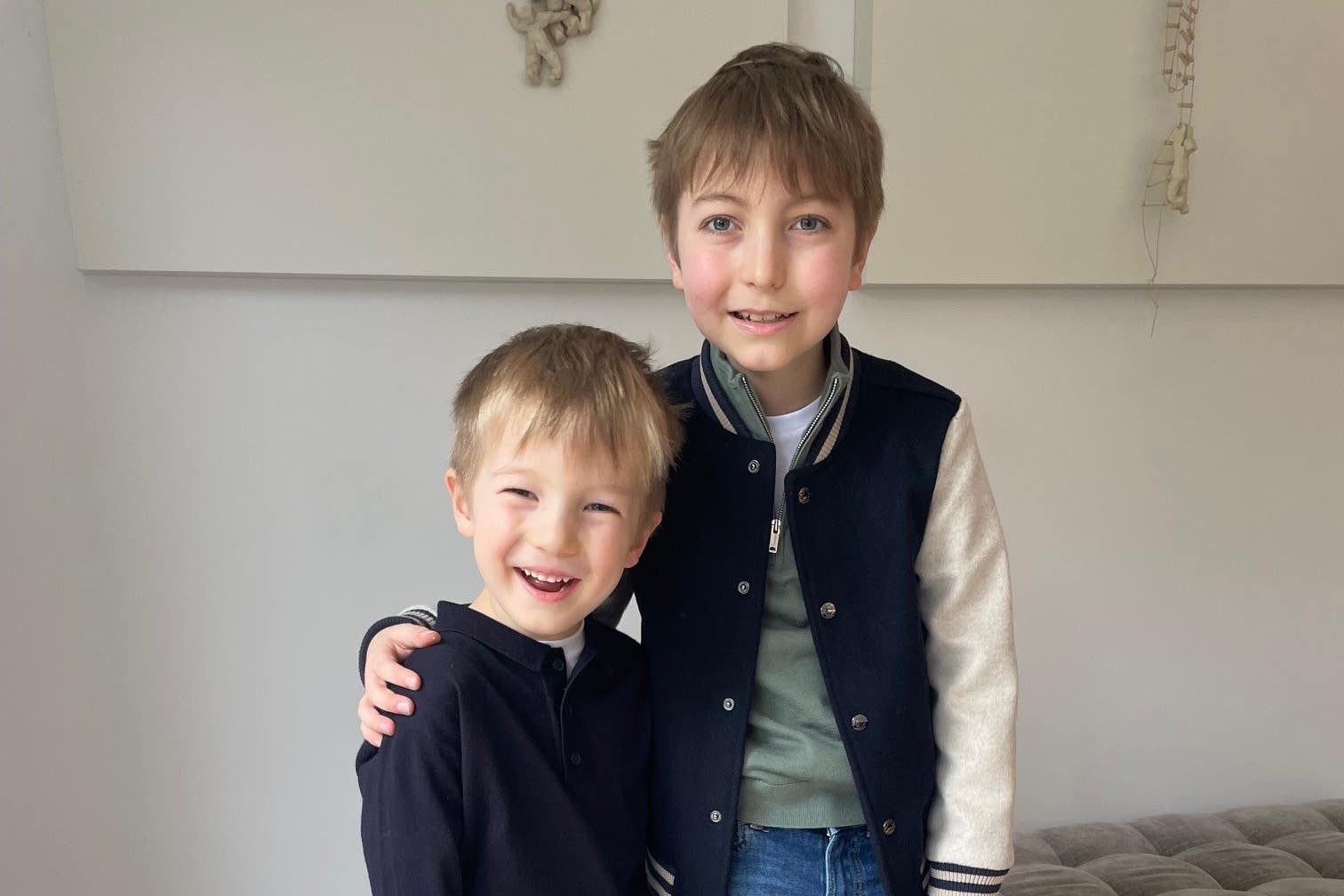Boy whose cancer was half the size of a lung takes part in genetics trial
Eddie Pessoa de Araujo was diagnosed with T-cell acute lymphoblastic leukaemia and underwent treatment at Great Ormond Street.

Your support helps us to tell the story
From reproductive rights to climate change to Big Tech, The Independent is on the ground when the story is developing. Whether it's investigating the financials of Elon Musk's pro-Trump PAC or producing our latest documentary, 'The A Word', which shines a light on the American women fighting for reproductive rights, we know how important it is to parse out the facts from the messaging.
At such a critical moment in US history, we need reporters on the ground. Your donation allows us to keep sending journalists to speak to both sides of the story.
The Independent is trusted by Americans across the entire political spectrum. And unlike many other quality news outlets, we choose not to lock Americans out of our reporting and analysis with paywalls. We believe quality journalism should be available to everyone, paid for by those who can afford it.
Your support makes all the difference.Eddie Pessoa de Araujo was just six-years-old when doctors discovered a huge mass in his chest which had moved his heart towards the centre.
His parents had been worried for a while that their Lego-loving son kept having low-grade fevers which made him very lethargic.
His mother Harri, from London, told the PA news agency: “What we started noticing at the end of 2020 was that he was getting low-grade fevers that were just knocking him out.
“They were 37.8C, maybe pushing 38C, but they were to the point where he would not even sit upright.
“He would lay there basically in the dark. And this started happening every four weeks … and then it started getting more frequent.
“By the time we got to, I think it was around March or April 2021, he was getting them every two weeks … just really knocked out by something that didn’t seem to have any other symptoms than a low-grade fever.”
Mrs Pessoa de Araujo took Eddie to the GP, where tests showed nothing abnormal. A second GP also ran blood tests which failed to show anything unusual.
The family asked for a referral to a specialist paediatrician and it was during that appointment that a chest X-ray was ordered.
“There was one symptom that really sticks in my mind … and that is that we were reading a bedtime story and Eddie was really out of breath for no reason,” Mrs Pessoa de Araujo said.
“I said that to the paediatrician and he said ‘OK, I’m going to add a chest X-ray as well’ to the other tests he was doing.”
Eddie underwent several tests in one afternoon. That night, after he was asleep, his mother received a phone call.
“The paediatrician said to me, ‘Eddie has a mass half the size of one of his lungs showing up on his chest X-ray.
“You need to wake him up right now and you need to take him to Chelsea and Westminster (hospital) because we don’t know how that mass is compromising him’.”
Eddie was rushed into hospital, where the process of diagnosing him with cancer gathered pace.
“It literally was like the world had gone into slow motion,” Mrs Pessoa de Araujo explained. “I know it’s a cliche, but it felt like we were free-falling.
“To this day, that feeling of just free-falling – you don’t ever forget it.”
Medics at Chelsea and Westminster told the family they could not admit Eddie and that he would need specialist treatment “because of the level of seriousness of the mass on his chest,” Mrs Pessoa de Araujo said.
“It had actually moved his heart into the centre and one of his lungs wasn’t aerating properly.
“We waited for a specialist ambulance to come and pick us up, and we were transferred to Great Ormond Street Hospital at about four o’clock in the morning.
“The next day, he was diagnosed with T-cell acute lymphoblastic leukemia (T-ALL).”
Eddie had steroids to reduce the size of the mass and was put on chemotherapy straight away.
Overall, the youngster underwent two-and-a-half years of treatment before being given the all-clear. He rang the end-of-treatment bell last week.
Medics at Great Ormond Street also offered the family whole genome sequencing to gather information about Eddie’s cancer and the risks for younger brother Leo, now aged four.
Mrs Pessoa de Araujo said: “Our consultant said the number one question parents ask is ‘what’s the prognosis for my child?’
“And the second question parents ask if they have a second child is ‘what does this mean for my second child?’
“For us, the genome sequencing ticked both of those boxes.
“We wanted as much information as possible about Eddie’s treatment, it was an absolute no-brainer.”
The test showed there was nothing in Eddie’s genome sequencing that would suggest he would suffer from any sort of aggravating factors.
“It also suggested that it had nothing to do with genes, so Leo was no more likely to get it than any other child in the population,” Mrs Pessoa de Araujo said.
“So, we obviously found it incredibly comforting at that point to have that piece of information.”
Mrs Pessoa de Araujo said of the diagnosis: “I always say that having a child with a cancer diagnosis feels like you’ve been standing on a trapdoor all these years without knowing.
“Then after the diagnosis, you are in free-fall. And even when things are stable again, you are constantly aware that the trapdoor is still there and there is a possibility it could open again at any time.
“Having access to whole genome sequencing gave us some sense of reassurance … it helped us turn something so devastating into something positive.”